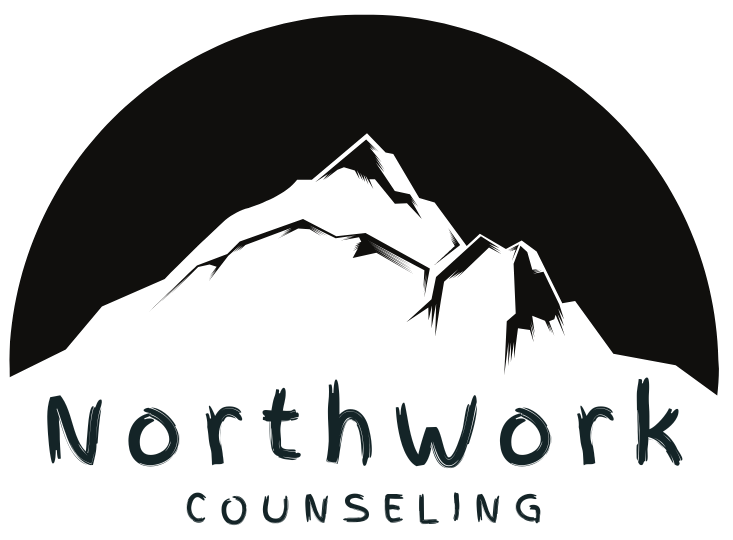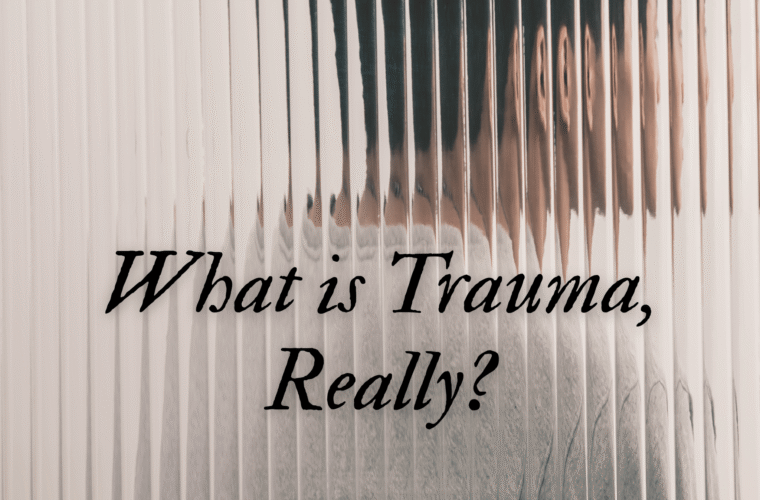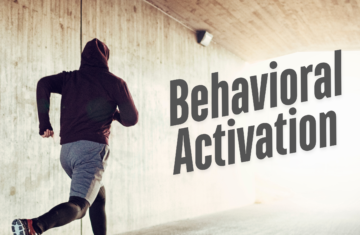What is Trauma, Really? (And How to Know If It’s Affecting You)
A lot of people don’t think they have trauma. They might say, “I don’t know why this hits me so hard,” or “That wasn’t a big deal, was it?” But trauma isn’t just about what happened — it’s about how your nervous system responded when something did.
Many of the people I work with wouldn’t initially describe their life experiences as traumatic. But over time, as we dig in, we start to notice patterns. Sometimes it’s subtle such as someone getting worked up and sweaty on the way to a family dinner— not sure why but their body is in full alarm mode. Symptoms like this are not uncommon. In fact, it’s one of the most common ways trauma shows up: through unexplained anxiety, avoidance, and physical tension.
Let’s break this down a bit.
What Is Trauma?
Trauma is anything that overwhelms your ability to cope and leaves a lasting impact on your body, mind, or relationships. It can be one big, scary event — or it can be repeated, smaller moments where your needs were dismissed, your emotions weren’t safe, or your environment was unpredictable.
For example, I have had many clients tell me that as kids, their parents anger was something they avoided. Usually, there wasn’t a clear reason why they would get angry. But the message over time was: you better watch out, you never know when you will mess up. That can shape how you show up in the world as an adult. You learn to avoid and minimize things. You learn that being social isn’t worth the risk. That’s a slow-building kind of trauma.
It’s not always about physical harm or overt abuse. Sometimes it’s just the absence of safety, consistency, or connection — and your nervous system adapts.
How to Recognize Trauma in Yourself
A lot of people will say, “I just prefer to stay home,” or “I don’t really like going out.” But when we dig deeper, it turns out it’s not about preference — it’s about fear. Fear of being overwhelmed. Fear of being judged. Or even just fear that something might go wrong, and you won’t know how to handle it.
Here are a few signs trauma might be affecting you:
- You get anxious or irritated in certain situations and don’t really know why.
- You avoid people, places, or experiences that used to feel okay.
- You feel disconnected — like you’re watching life instead of living it.
- Your body reacts (sweaty palms, racing heart, tight chest) even when your mind is saying “this shouldn’t be a big deal.”
One thing I try to do in therapy is help people slow down and notice what’s going on inside them — physically and emotionally — so we can make sense of it. Your nervous system is trying to protect you, but it may be reacting to something from the past, not the present.
Practical Tips for Managing Trauma
So what can you do if you start to notice these signs?
1. Call it what it is.
A lot of relief starts when you stop saying “What’s wrong with me?” and start saying, “Maybe this is trauma.” It helps you see your reactions not as weakness or failure, but as adaptive responses that your body learned over time.
2. Start with safety and structure.
If you’ve been in survival mode, your system needs safety. That starts with small, daily routines. Sleep, movement, nutrition — those aren’t just lifestyle tips; they’re trauma recovery strategies.
3. Pay attention to your body.
You can’t think your way out of trauma. You have to feel your way through it — in a way that’s safe and grounded. Learning to notice when you’re clenching your fists, holding your breath, or avoiding eye contact can be the start of learning how to regulate yourself.
4. Don’t try to do this alone.
Healing in isolation is nearly impossible. If you’ve been carrying this for a long time, therapy can help you see it clearly and begin to untangle it. It gives you space to process the past, notice patterns, and find new ways of living that feel more connected and empowered. You might find resources like these self-regulation tools helpful to start.
You’re Not Broken — You Adapted
If you see yourself in any of this, I want you to hear this: you’re not broken. You adapted. The things you do now — the avoidance, the overthinking, the shutdown — they made sense at some point. But they don’t have to run your life anymore.
There is hope. There is help. And it’s okay to start small. Even noticing what you feel right now — in your body, in your thoughts — is a step forward.




